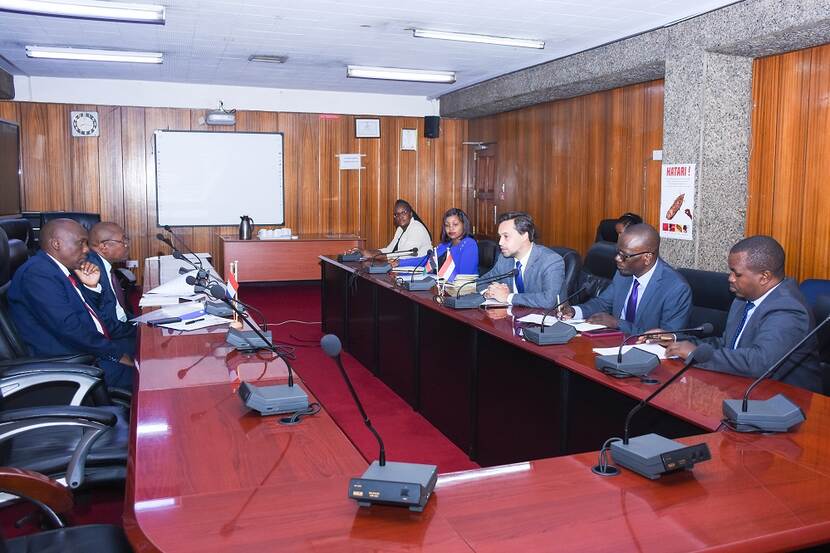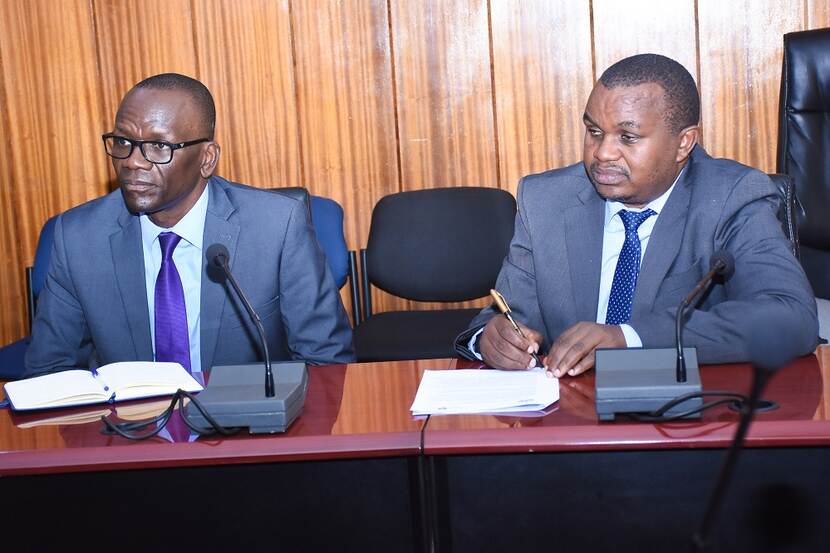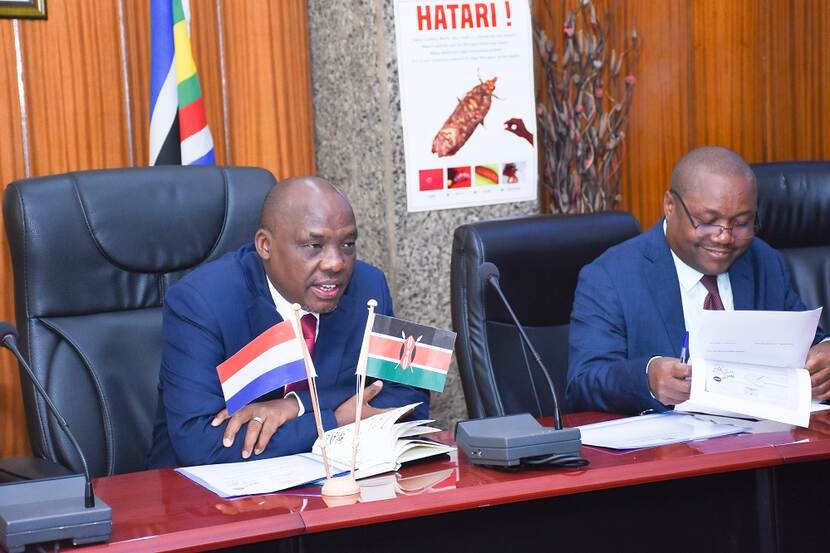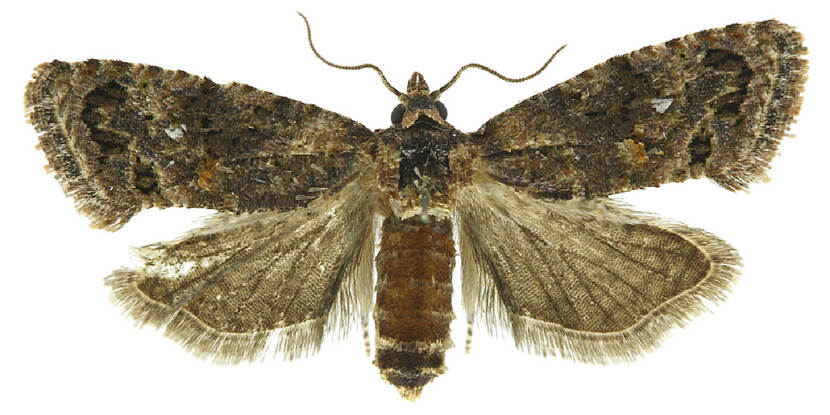Taking on the false codling moth to safeguard Kenya's exports to Europe
On 8th July 2024, the Embassy of the Kingdom of the Netherlands, led by Bart Pauwels, Agricultural Counsellor for Kenya and Tanzania, paid a courtesy visit to Dr. Paul Ronoh, Principal Secretary of the State Department for Agriculture. The meeting was convened to discuss the planned launch of the Market Access Project, which aims to intensify initiatives towards addressing the increasing prevalence of the False Codling Moth (FCM) in Kenya, which has increased interception at the port of import entry from 10% to 25%.

During the meeting, Bart highlighted the importance of the Kenyan market to Europe and underscored the urgent need to tackle the FCM challenge. The session was also attended by Dr. Isaac Macharia, Principal Inspector and Pathologist at KEPHIS, and Clement Tulezi, CEO of the Kenya Flower Council.
The False Codling Moth (FCM), a destructive pest that affects a variety of crops, including citrus, avocados, and roses, which are key export products for Kenya to Europe has been on the rise in Kenya. In recent years, the presence of the False Codling Moth in export consignments has led to the interception of roses at the EU port of Entry in The Netherlands due to stringent phytosanitary measures and potential trade restrictions from European Union markets.


Several institutions are actively working to mitigate the impact of the False Codling Moth and ensure that Kenyan exports remain viable and competitive in European markets. The Kenya Flower Council (KFC) plays a pivotal role in addressing the issue of the False Codling Moth (FCM) in Kenya. As an industry association that represents the interests of flower growers, exporters, and other stakeholders in the floriculture industry, Kenya Flower Council undertakes several initiatives to combat the threat posed by FCM. These include;
- promoting best practices
- collaborating with regulatory bodies
- aligning with international standards advocating for supportive policies.
Kenya Flower Council (KFC) collaborates closely with the Pest Control Products Board (PCPB) to tackle the challenges posed by the False Codling Moth (FCM), to fast-track approval of pesticides that target FCM. In addition, they also work with The Kenya Plant Health Inspectorate Service (KEPHIS) and international partners to align the floriculture industry with global phytosanitary standards has also been pivotal in addressing this growing menace. KEPHIS conducts inspections, certifies exports, and implements phytosanitary measures to prevent the spread of pests like the False Codling Moth.
These efforts have led to the involvement of the agricultural team of the Embassy of the Kingdom of The Netherlands to support initiatives geared towards addressing the False Codling Moth challenge, through technical assistance, funding, and facilitating collaborations between Kenyan farmers, exporters, and Dutch agricultural experts.

The Market Access Project represents a significant step towards enhancing the phytosanitary standards of Kenyan produce, ensuring it remains competitive in global markets. The collaboration between the Embassy of the Kingdom of the Netherlands, KEPHIS, and the Kenya Flower Council is pivotal in addressing the FCM issue and supporting the agricultural sector's growth and sustainability.

For more information about this sector or any other agricultural questions feel free to contact us via nai-lnv@minbuza.nl. For the latest updates on activities, new articles and more follow us on X (Twitter) on @NLAgiKenya and subscribe to our newsletter by sending us an email. In case of any non-agriculture questions for the Netherlands Embassy in Nairobi, see this website for contact information